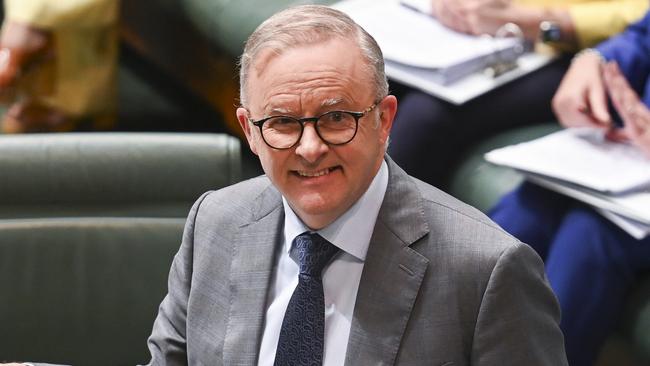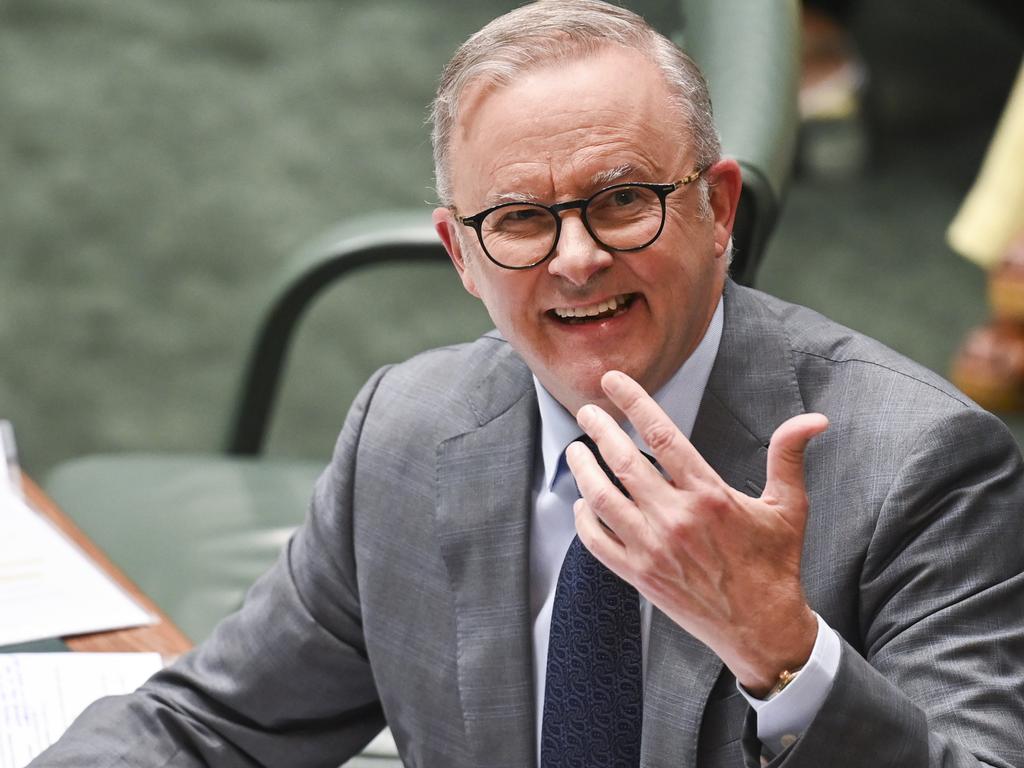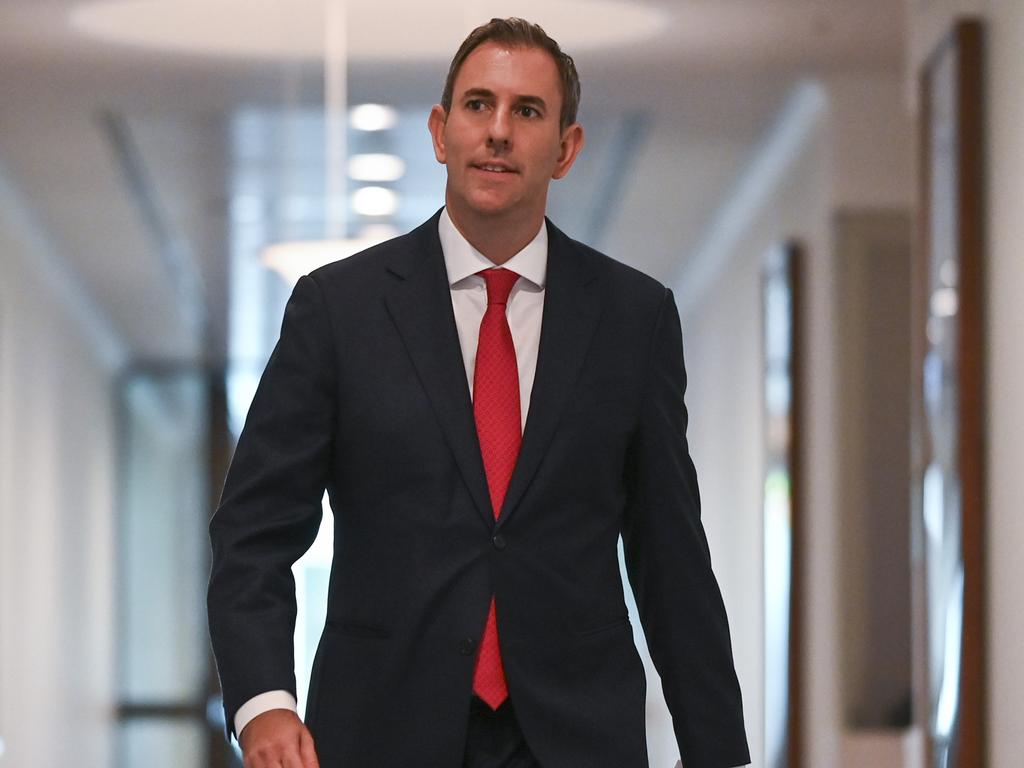Newspoll: Labor heading toward minority government at next election
Labor is drifting toward minority government at the next federal poll with its primary-vote support now lower than at the last election.

Federal Labor is drifting toward minority government at the next election with its primary-vote support now lower than at the last election, as cost-of-living pressures erode its lead over the Coalition.
An exclusive Newspoll conducted for The Australian shows Labor’s primary vote falling a point to 32 per cent.
It is the worst result for the government since the post-referendum backlash last November and suggests that any electoral benefit gained from its tax cut backflip in January has faded as the government begins its May budget planning.
The Coalition’s primary vote lifted a point to 37 per cent, which is almost two points higher than the May 2022 election result but still too low to form government if repeated at an election.
A total of 31 per cent of voters nominated anyone other than the major parties, a trend mirrored in the Tasmanian election on Saturday, with neither the Liberal Party nor Labor winning enough seats for a majority government.
The Greens nationally have lifted a point to 13 per cent while Pauline Hanson’s One Nation also rose a point to 7 per cent. Support for other minor parties and independents, including teals, has fallen two points to 11 per cent. This is considerably lower than the 14.5 per cent that fringe parties and independents secured at the 2022 election.
The combined support for Labor and the Coalition at 69 per cent confirms the trend away from the major parties continues.
Labor’s two-party-preferred lead over the Coalition has been reduced two points to 51-49 per cent. It narrowly won the last election securing 77 seats in the 151 parliament on a two-party preferred vote of 52.1 per cent compared with the Liberal-Nationals vote of 47.9 per cent.
Labor’s primary vote of 32 per cent in the latest poll is the lowest since the election with the exception of a dip to 31 per cent last November following the defeat of the voice referendum.
Since the previous poll conducted in late February, the government has faced repeated calls to do more on cost of living beyond the tax cuts that were announced before the Dunkley by-election. The tax cuts are credited with helping Labor hold the outer-suburban Melbourne seat.
Other issues have since challenged the government, including energy policy, the vehicle emissions tax, the housing crisis and migration, and the rolling political crisis around immigration detention.
However, cost of living remains the dominant electoral issue ahead of the May budget.
There has been little change in the approval ratings for either leader in the past month.
Anthony Albanese’s approval levels rose a point to 44 per cent while his dissatisfaction rating remained unchanged on 51 per cent for a net approval rating of minus seven. Liberal leader Peter Dutton’s approval rating of 37 per cent was unchanged while his disapproval rose a point to 52 per cent, leaving him with a net rating of minus 15.
In the head-to-head contest on which leader would make the better prime minister, the numbers also remained largely unaltered. Mr Albanese rose a point to 48 per cent while Mr Dutton fell a point to 34 per cent with 18 per cent of voters claiming they didn’t know.
The Newspoll surveyed 1223 voters nationally between March 18 and 22.








To join the conversation, please log in. Don't have an account? Register
Join the conversation, you are commenting as Logout